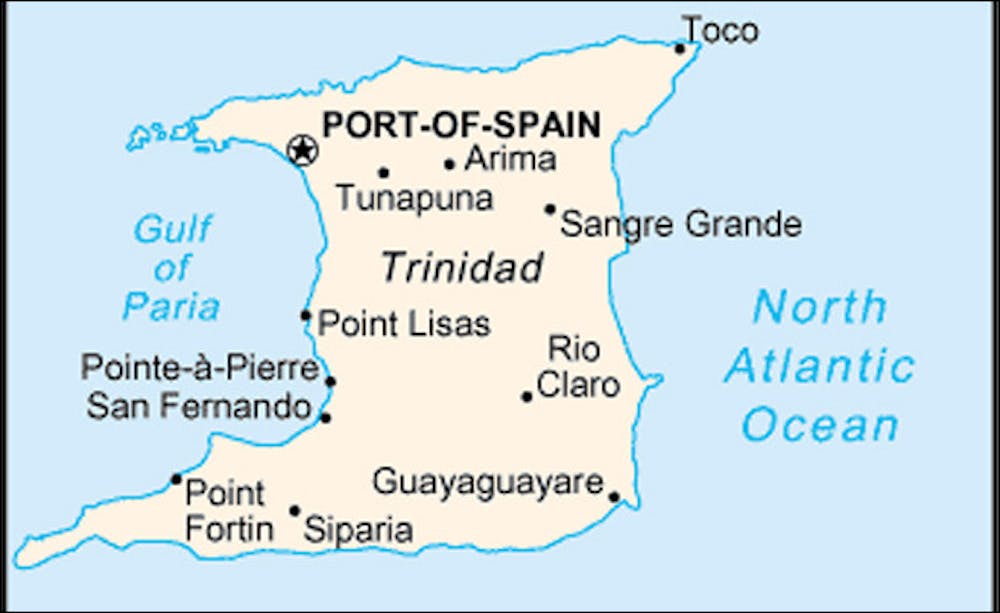The Center for Violence Prevention and Community Safety at the West campus is working to prevent gang crime as far away as the Caribbean.
Through the center, ASU faculty and students have been working in the island nation of Trinidad and Tobago since 2004.
Andrew Fox, a first-year doctoral student in the School of Criminology and Criminal Justice, worked to assess crime and youth delinquency there last school year.
He has traveled to work in the country twice in his past two years as a graduate assistant for the violence-prevention center.
Trinidad and Tobago, located off the coast of Venezuela, boasts that it is “the true Caribbean,” and its tourism industry has been expanding rapidly over the past decade, according a government Web site.
As a result, the government is dealing with a severe increase in violent crime, especially among youth involved in gangs and gun assault, according to the site.
Fox worked on the Trinidad and Tobago Youth Survey, a study that was administered to 2,500 youth all over the country.
The survey asked questions about drugs, gangs, youth crime and the risks associated with them.
“[The survey] was to determine who is more at risk, what factor makes them this way and what can lessen their delinquency,” Fox said. “The survey is modeled after the Arizona Youth Survey, which is conducted by the Arizona Criminal Justice Commission.”
But the survey didn’t translate from Arizona to Trinidad and Tobago exactly. It was changed to reflect the cultural verbiage and norms, Fox said.
Fox submitted a comprehensive report about the results to the Trinidad and Tobago Police Service, Ministry of National Security and Ministry of Education. Eventually, the report also became his master’s thesis, he said.
Fox and the center’s director, Charles Katz, worked together to analyze the data and develop the report.
Katz, who is also an associate professor of criminology and criminal justice, worked to establish a homicide bureau for Trinidad and Tobago.
“Four years ago, they didn’t have a unit set up to respond to homicide calls,” Katz said. “We made serious suggestions about staffing, policies and procedures, and safety on the field.”
After establishing the unit, groups from the ASU team have also provided training and further examination to the unit, Katz said.
The bureau, located in the nation’s capital, Port of Spain, is currently staffed by 140 officers working to control and prevent homicides.
Port of Spain is one of the most dangerous parts of the country, Fox said.
“A lot of crime is concentrated in the capital,” Fox said. “It is where the majority of homicides occur.”
Katz said he has made more than 40 trips to Trinidad and Tobago over the last three years and has spent most of his time working in Port of Spain.
“Most of the violence I’ve seen has been fairly minor disturbances,” he said. “But I did see a guy get hacked with a machete in the street once.”
Katz said the center is contracted to work with the Trinidad and Tobago government in developing a capacity to respond to crime, focusing on gangs and homicides.
ASU was solicited to aid the Trinidad and Tobago government in 2004 through a partnership with George Mason University. In 2005, it began sending leaders from the violence-prevention center and criminology graduate students to assist the nation.
“We have been there for almost four years and are continuing to work through further contracts,” he said.
The ASU violence-prevention center and associated students will continue to work in Trinidad in Tobago until the government severs the contract, Katz said.
Reach the reporter at tessa.muggeridge@asu.edu.




